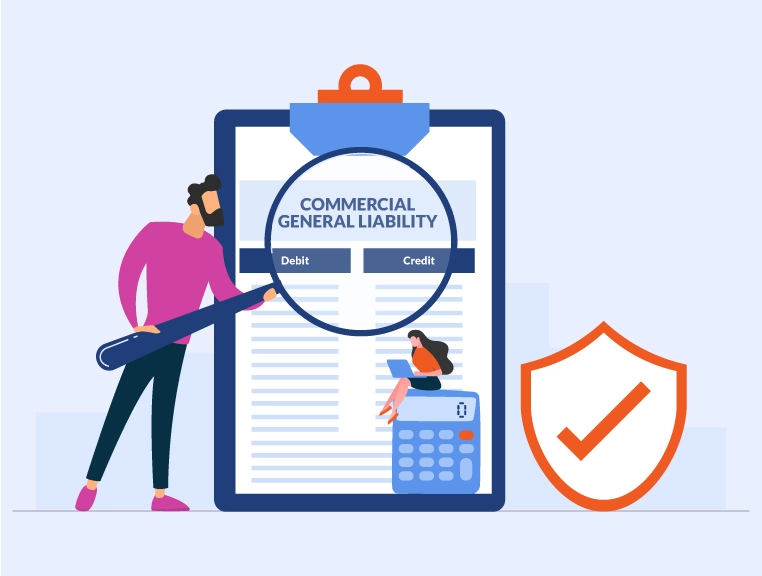Overview
A Commercial General Liability (CGL) policy does not typically cover automotive liability related to ownership, maintenance, or use of vehicles. Instead, such exposures are handled through a separate Commercial Auto Insurance or Business Auto Policy (BAP).
✅ What’s Covered:
- Premises liability from vehicle loading/unloading (in some cases)
- Vicarious liability when a contractor or third party’s vehicle causes damage on your premises
- Parking lot incidents related to business operations (with some exceptions)
❌ What’s Not Covered:
- Bodily injury or property damage caused by your owned, leased, or operated vehicles
- Auto accidents during business transport
- Any vehicle-related liability directly involving operation or maintenance
Commercial & General Liability ( CGL ) policy provides coverage for Non-Owned and Hired Automotive Liability referred to as NOHAL.
Let us understand the paradigm under which NOHAL works –
A company would need to take necessary steps to ensure that its own fleet operation covers properly in the event of an accident. But a potential loss may arise from employees who operate their own personal vehicles for company business. Below are a few instances where the company can be accountable for the actions of its employees while they are driving their own vehicles.
- The administrative employee uses his/her own vehicles to go to the post office or bank on the company’s behalf
- Employee goes to pick up a visiting client at the airport
- Rented a vehicle while on a business trip
- Salesforce provided a car allowance for business use of their personal vehicles
Does personal automobile insurance provide insurance?
If an employee meets with an accident under any of these situations, the company can be held accountable. And maybe sued for damages. Typically, an employee’s personal automobile insurance will provide primary insurance to both the employee and the company if the employee is using his or her own vehicle on the company business. However, there is a chance that charges will exceed the employee’s policy limit. And then it would pass on to the company. Without non-owned and hired automobile liability coverage the company may be vulnerable to a costly exposure.
Non-owned and hired automobile liability insurance covers bodily injury and property damage. Caused by a vehicle the insured hires (including rented or borrowed vehicles) or caused by non-owned vehicles (vehicles owned by others, including vehicles owned by your employees). Can also add the Non-owned and hired automotive liability coverage to the general liability CGL policy. It protects the company if it is legally liable. And as a result of an automobile accident that the employee has in a hired or non-owned vehicle while on company business.
FAQs
Q) Does a CGL policy cover auto accidents?
A) No, a CGL policy generally excludes auto accidents involving owned or operated vehicles. Auto-related liability is covered under commercial auto insurance.
Q) What vehicle-related incidents are covered under CGL insurance?
A) CGL may cover liability arising from loading/unloading activities or incidents involving non-owned vehicles used on your premises — but not accidents caused by your company vehicles.
Q) What is excluded from CGL regarding automotive liability?
A) Exclusions include bodily injury or property damage from vehicle use, ownership, or maintenance. Separate auto insurance is needed for such coverage.
Q) How can I cover automotive liability for my business?
A) You should consider a Commercial Auto Policy or Hired & Non-Owned Auto Liability Insurance (HNOA) to cover vehicles used for business purposes.
Q) Why is auto liability excluded from standard CGL policies?
A) Because the risks associated with operating vehicles are unique and significant, insurers separate them into dedicated auto insurance policies to ensure appropriate premium and claims handling.
Written By- CGL
Ritesh Garg
MBA Insurance and Risk
Ritesh is a distinguished writer specializing in articles on Commercial General Liability (CGL) insurance for SecureNow. Leveraging 7 years of experience in the field, he possesses a thorough understanding of the intricacies and nuances of CGL policies. His articles delve into various aspects of CGL insurance, providing readers with valuable insights into liability coverage for businesses and risk mitigation strategies. Renowned for their expertise and clarity, Ritesh is dedicated to delivering informative and engaging content that empowers businesses to protect themselves against potential liabilities and risks.

